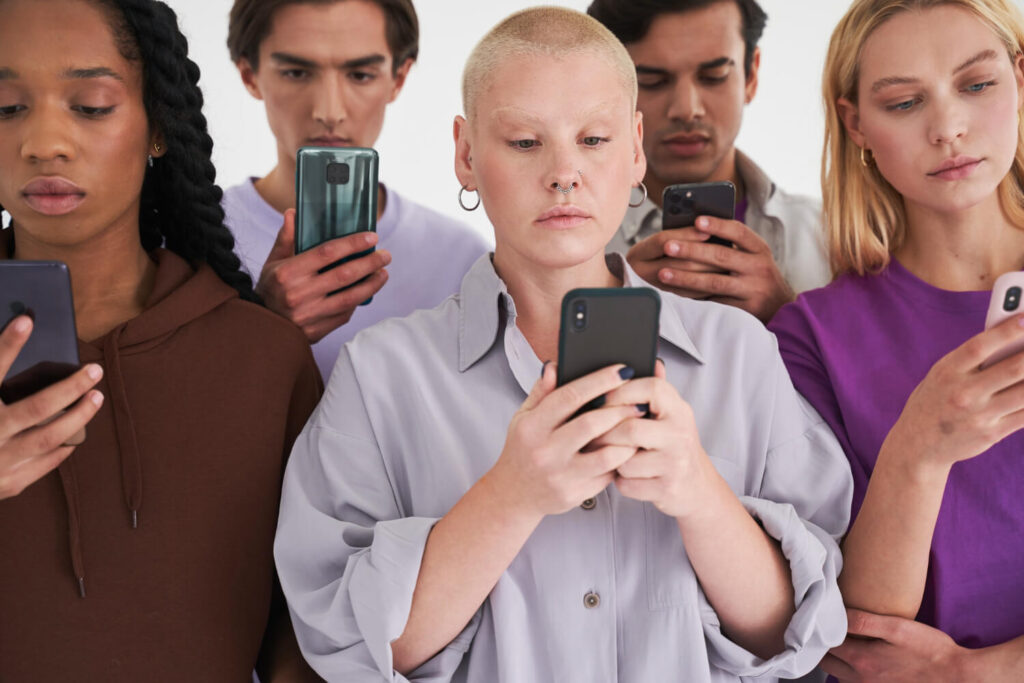Table of Contents
ToggleIntroduction
In the era of digital advancements, the pervasive presence of social media has seamlessly woven itself into the fabric of our everyday routines. It allows us to connect with friends and family, share experiences, and access a world of information at our fingertips. Impact of Social Media on Mental Health has sparked apprehensions regarding its influence on mental well-being. With the constant influx of curated images and idealized lifestyles, individuals may find themselves grappling with feelings of inadequacy, anxiety, and depression. Let’s delve into the intricate relationship between social media usage and mental well-being, shedding light on the challenges and potential solutions.

Impact of Social Media on Mental Health
Understanding the Influence of Social Media
Social media platforms are designed to encourage engagement and interaction, often through the sharing of personal content. This virtual environment fosters a culture of comparison, where individuals may find themselves constantly measuring their lives against the carefully crafted personas of others. From picture-perfect vacations to flawless selfies, the digital realm can distort reality, leading to feelings of dissatisfaction and unworthiness. It’s essential to recognize that the images and narratives portrayed on social media are often selective, presenting an idealized version of reality that can blur the lines between authenticity and fiction.
The Connection between Social Media and Emotional Well-being
Studies have revealed a significant correlation between heavy social media use and poor mental health outcomes. Excessive exposure to social media has been associated with increased levels of anxiety, loneliness, and depression, particularly among young adults and adolescents. The pressure to gain approval and validation through likes, shares, and comments can contribute to a constant need for external affirmation, leading to a fragile sense of self-worth. Moreover, the omnipresence of cyberbullying and online harassment can exacerbate the negative impact on mental well-being, creating an environment of hostility and emotional distress.
Navigating the Challenges Posed by Social Media
While the perils of social media on mental health are evident, it’s crucial to highlight the strategies that can mitigate its adverse effects. Establishing a healthy relationship with social media involves setting boundaries and practicing mindful usage. Creating a balance between online and offline activities can foster a sense of perspective, allowing individuals to prioritize real-life connections and experiences. Furthermore, cultivating a supportive online community that promotes positivity and constructive dialogue can serve as a protective shield against the detrimental aspects of social media.

Impact of Social Media on Mental Health
Implementing Self-Care in the Digital Era
Amidst the constant influx of information and digital stimuli, prioritizing self-care is paramount. Engaging in activities that promote mindfulness, such as meditation, exercise, and hobbies, can help individuals foster resilience and emotional well-being. Limiting screen time and cultivating a digital detox routine can provide individuals with the necessary space to rejuvenate and recalibrate their mental equilibrium. Seeking professional support and guidance, when necessary, can empower individuals to navigate the complexities of social media and its impact on mental health.
Cultivating a Healthy Online Environment
As the digital landscape continues to evolve, it is imperative to foster a culture of digital empathy and compassion. Encouraging online platforms to implement robust measures to combat cyberbullying and promote mental well-being can pave the way for a safer and more nurturing virtual space. Promoting digital literacy and educating users about the potential risks of excessive social media usage can empower individuals to make informed decisions and prioritize their mental health.
Conclusion

Conclusion: Impact of Social Media on Mental Health
In conclusion, the impact of social media on mental health is multifaceted and requires a nuanced approach. While social media serves as a powerful tool for connectivity and information sharing, its impact on mental well-being necessitates a conscientious and balanced approach. By fostering self-awareness, promoting digital literacy, and advocating for a supportive online community, individuals can navigate the digital landscape with resilience and mindfulness. Embracing the essence of human connection and self-care remains instrumental in safeguarding mental health in the era of social media dominance.
Frequently Asked Questions (FAQs)

Q: How does excessive social media use affect mental health?
Excessive social media use has been linked to increased levels of anxiety, depression, and feelings of inadequacy due to constant comparison with others.
Q: Can social media contribute to feelings of isolation and loneliness?
Yes, the curated nature of social media content can lead individuals to feel disconnected from real-life experiences, fostering a sense of isolation and loneliness.
Q: What steps can individuals take to reduce the negative impact of social media on their mental well-being?
Setting boundaries for screen time, practicing digital detox, and engaging in activities that promote mindfulness and self-care can help mitigate the adverse effects of social media.
Q: How can one differentiate between authentic content and curated content on social media platforms?
Understanding that social media often portrays an idealized version of reality is key. Being mindful of the selective nature of content and acknowledging the presence of filters and editing can help individuals discern between authentic and curated content.
Q: What role can a supportive online community play in fostering mental well-being on social media?
A supportive online community can provide a nurturing space for individuals to share experiences, seek advice, and receive emotional support, fostering a sense of belonging and understanding.








